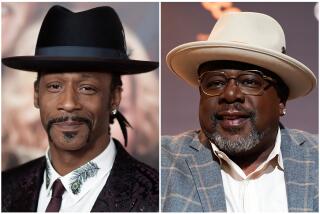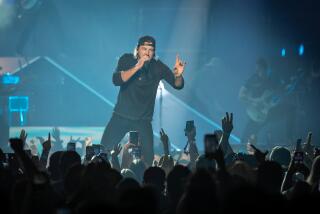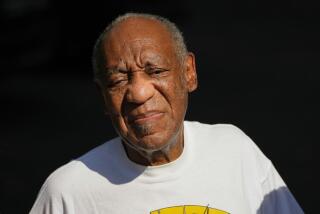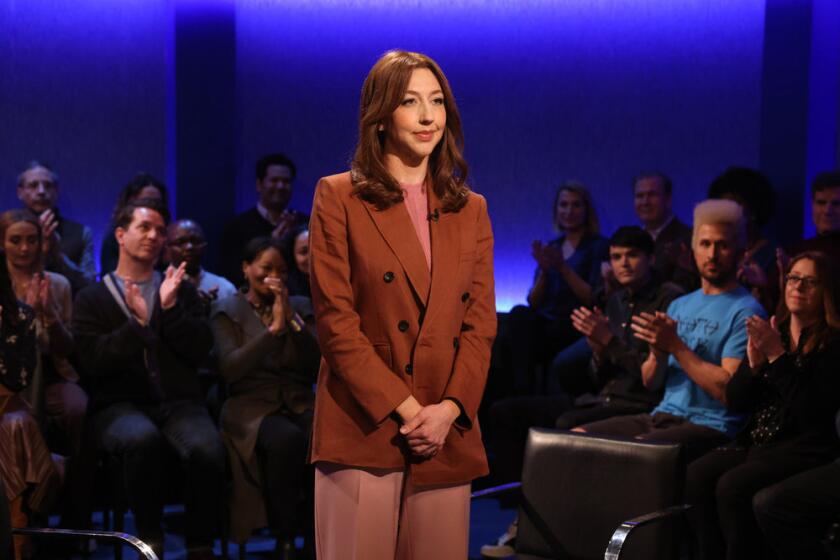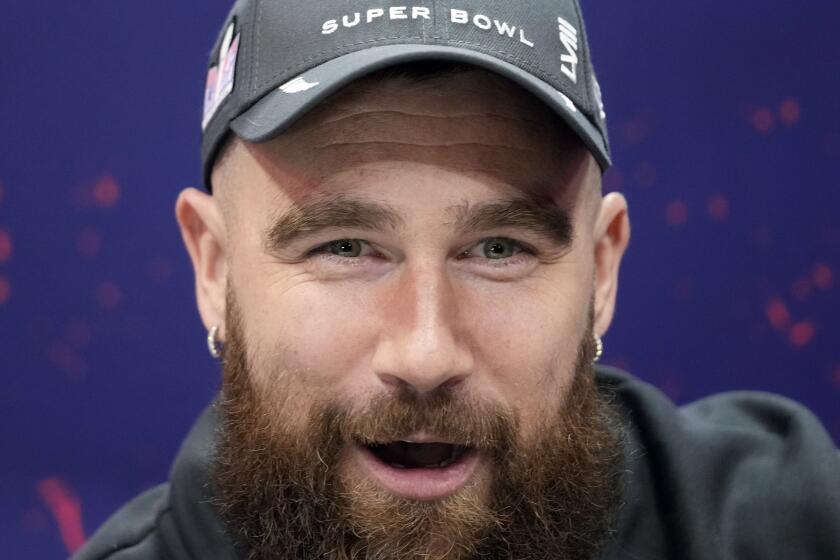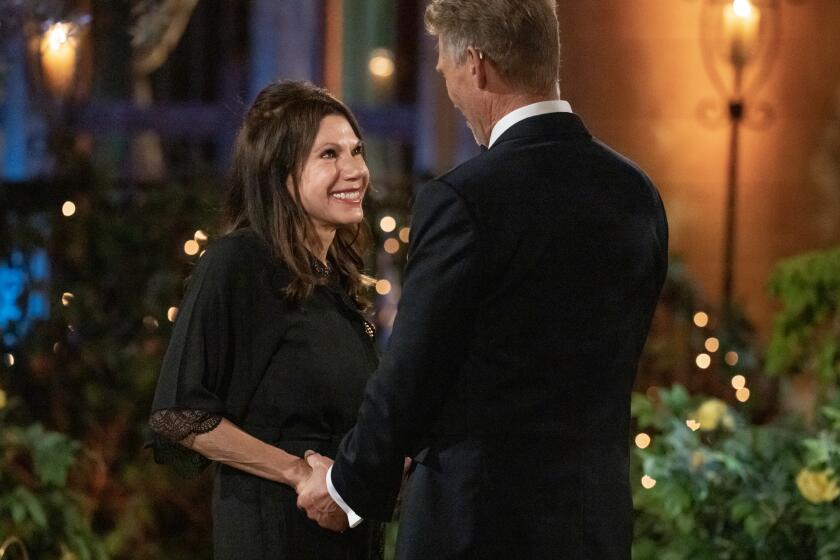How Bill Cosby’s ‘Pound Cake’ speech backfired on the comedian
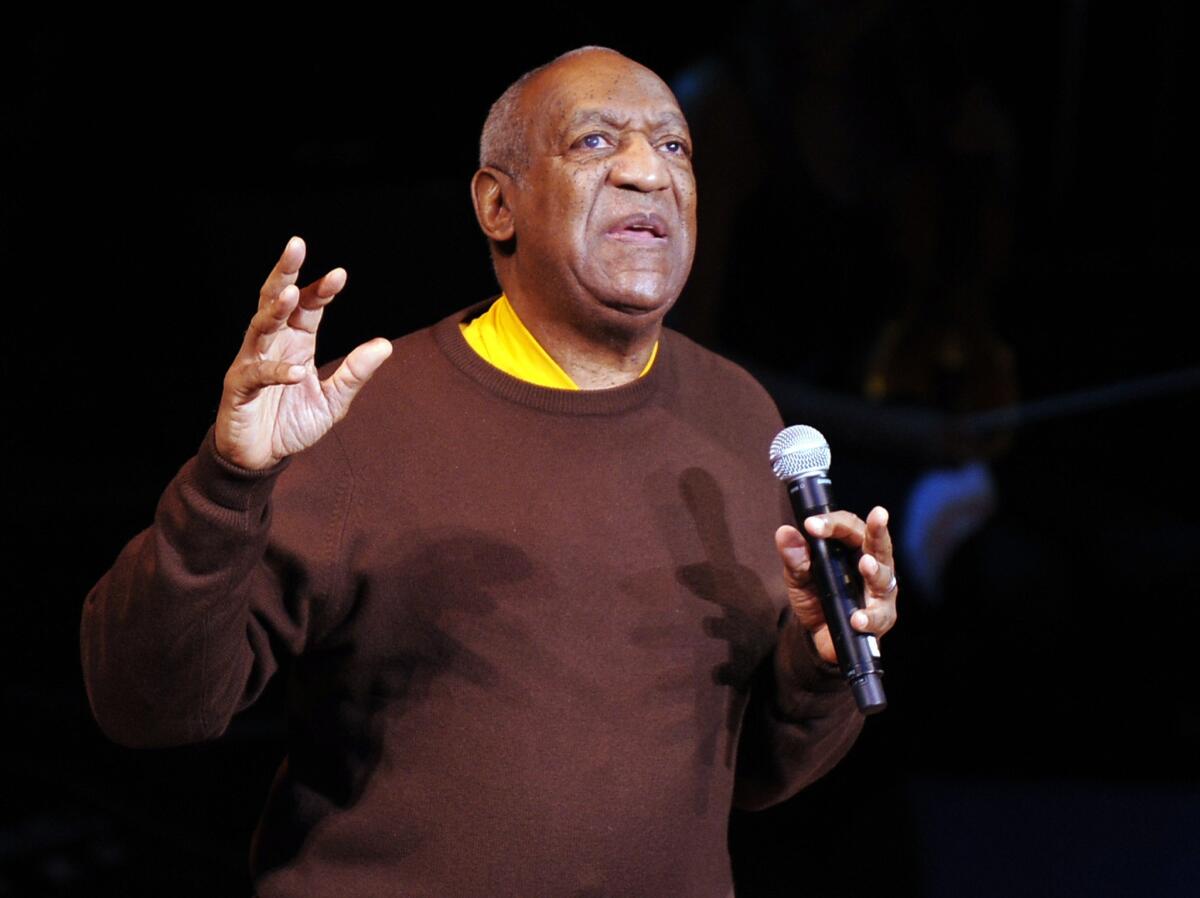
Bill Cosby, shown in 2010, urged his fellow African Americans to stop blaming racism for their woes and lashed out at single mothers at a 2004 NAACP event.
When Bill Cosby delivered a speech at an NAACP event commemorating the 50th anniversary of Brown vs. Board of Education in 2004, he probably imagined it would be controversial. After all, in his remarks the legendary comedian urged his fellow African Americans to stop blaming racism for their woes and lashed out at single mothers, low-slung pants and names like Shaniqua -- among other perceived societal menaces.
But he probably never imagined how it would play a pivotal role in his fall from grace 11 years later.
As dozens of women have come forward over the last year accusing Cosby of sexual assault, many observers have pointed to the so-called “Pound Cake” speech as evidence of Cosby’s alleged hypocrisy.
On Monday, Judge Eduardo C. Robreno went a step further. He argued that by taking a stance as a “public moralist” -- evidence he supported with a link to the Wikipedia entry for the Pound Cake speech -- Cosby had “voluntarily narrowed the zone of privacy that he is entitled to claim.” Against the objections of Cosby’s legal team, who had claimed that Cosby was not legally speaking a “public figure,” Robreno granted the Associated Press’ motion to obtain documents related to a 2005 civil lawsuit against Cosby.
“The stark contrast between Bill Cosby, the public moralist and Bill Cosby, the subject of serious allegations concerning improper (and perhaps criminal) conduct, is a matter as to which the AP -- and by extension the public -- has a significant interest,” Robreno wrote in his memorandum.
As we now know, these documents included a deposition in which Cosby admitted to obtaining Quaaludes with the intent of giving them to women he wanted to have sex with, and also giving them to at least one 19-year-old woman.
So just what did Cosby say when in 2004 he “mounted the proverbial electronic or print soap box to volunteer his views on, among other things, childrearing, family life, education, and crime,” as Robreno put it?
In what may be the most frequently cited passage in the Pound Cake speech, Cosby blamed the sort of low-level petty crime (e.g. stealing bottles of Coke or pieces of pound cake) that can spiral into police violence on bad parenting:
“These are people going around stealing Coca-Cola. People getting shot in the back of the head over a piece of pound cake! Then we all run out and are outraged, ‘The cops shouldn’t have shot him.’ What the hell was he doing with the pound cake in his hand? I wanted a piece of pound cake just as bad as anybody else. And I looked at it and I had no money. And something called parenting said if you get caught with it you’re going to embarrass your mother. Not you’re going to get your butt kicked. No. You’re going to embarrass your mother. You’re going to embarrass your family.”
Cosby also railed against single mothers in the speech. “No longer is a person embarrassed because they’re pregnant without a husband,” he said, suggesting that there was value to the social stigma once attached to unwed mothers. “In the old days, a girl getting pregnant had to go down South, and then her mother would go down to get her.”
He chastised women who have “five or six different children” from “eight, 10 different husbands or whatever.” Pretty soon you’re going to have to have DNA cards so you can tell who you’re making love to,” he joked.
And in a tangent that to some sounded suspiciously like get-off-my-lawn-ism, he expressed disapproval of “names like Shaniqua, Shaligua, Mohammed” and “people with their hat on backwards, pants down around the crack.”
As The Atlantic’s Ta-Nehisi Coates wrote in a 2008 piece on Cosby’s “black conservatism,” the speech sparked a heated debate within the black community, with some seeing it as “a message of black empowerment” and others (including Coates) arguing that it reeked of elitism.
Comedian Hannibal Buress was one of the people who objected to Cosby’s self-appointed role as a moral crusader. Buress’ stand-up routine helped bring the sexual assault charges against “The Cosby Show” star back into the public consciousness last year.
In a camera phone video of a Philadelphia performance that went viral, he said of Cosby: “He gets on TV: ‘Pull your pants up, black people, I was on TV in the ‘80s. I can talk down to you because I had a successful sitcom.’ Yeah, but you rape women, Bill Cosby, so turn the crazy down a couple notches.”
Follow @MeredithBlake on Twitter.
More to Read
The complete guide to home viewing
Get Screen Gab for everything about the TV shows and streaming movies everyone’s talking about.
You may occasionally receive promotional content from the Los Angeles Times.
